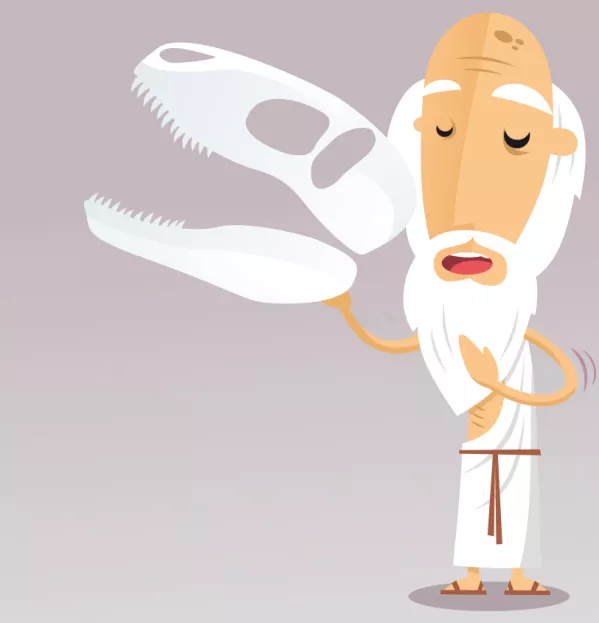There are four-year-olds who are fluent in dinosaurs. Some of them even know that “dinosaur” comes from the Greek for “scary lizard”. And some can tell us that “tyrannosaurus rex” means “tyrant king lizard”.
So what? Well, I reckon it’s something we could be capitalising on - children’s interest in and playfulness with big words. Something happens along the way where we feel that we have to water things down, make things accessible, instead of giving young people difficult words and talking to them about where the words come from. Not just the definitions, which only take us so far, but also the roots of the words. Which are usually from Latin and Greek.
What I’m arguing for is some light-touch attention to etymology, the study of the origin of words, in primary. This takes it to the next level from definitions.
The deal with etymology is that in going back to the origins of the word, we are creating a more secure understanding both of the purpose and the meaning of the word. Work on etymology creates a deeper connection with the word and provides a “basket” that links to the concept. This basket can hold a lot of information that supports pupils to make connections and see the bigger picture.
To take some examples: in maths, if pupils know that the root of the word “isosceles” is “equal legs” (isos = equal; skelos = leg), they have a firmer picture of the triangle’s features. And when they meet “isos” elsewhere, they will have a hook into understanding the meaning (eg, isotope, isometric).
Another example: helicopter has roots that mean “spiral” (“helix”) and “wing” (“pteros”). And funnily enough, the same root is at the heart of “pterodactyl”.
Teachers do not need to be experts in Latin and Greek themselves to present etymology to pupils. What they do need to do is ask a few questions: “Where does this word come from, I wonder?” “Who would like to find out?” Then this can be discussed at the start of the next lesson.
High challenge, low threat, interesting work for pupils, less for teachers.
How do I get started?
The first thing to do is to have a quick skim through your scheme of work or national curriculum documents for a particular subject. No need to spend too long on this; just pick up two or three words which take your interest and which you are likely to be sharing with pupils. So, for example, you might choose “synonym” and “antonym” from the primary national curriculum for English; or “fraction” in maths; or “civilisation” in history.
Where do I get the information?
A quick internet search for any of these words plus “etymology” will throw up the Latin and or Greek roots of the word. To take an example, if we check the etymology of “adjective”, we see that it comes from the Latin to “throw towards”, which can add a layer of understanding to the function of the word.
What should pupils do?
They could do a number of things. You can give them words and ask them to research their roots and then explain them in class. You might decide to choose their words from a vocabulary list of key words that pupils need to use with confidence as they learn a topic. Or the pupils could come up with words that they would like to research.
Mary Myatt is an education consultant and author of books including Hopeful Schools
